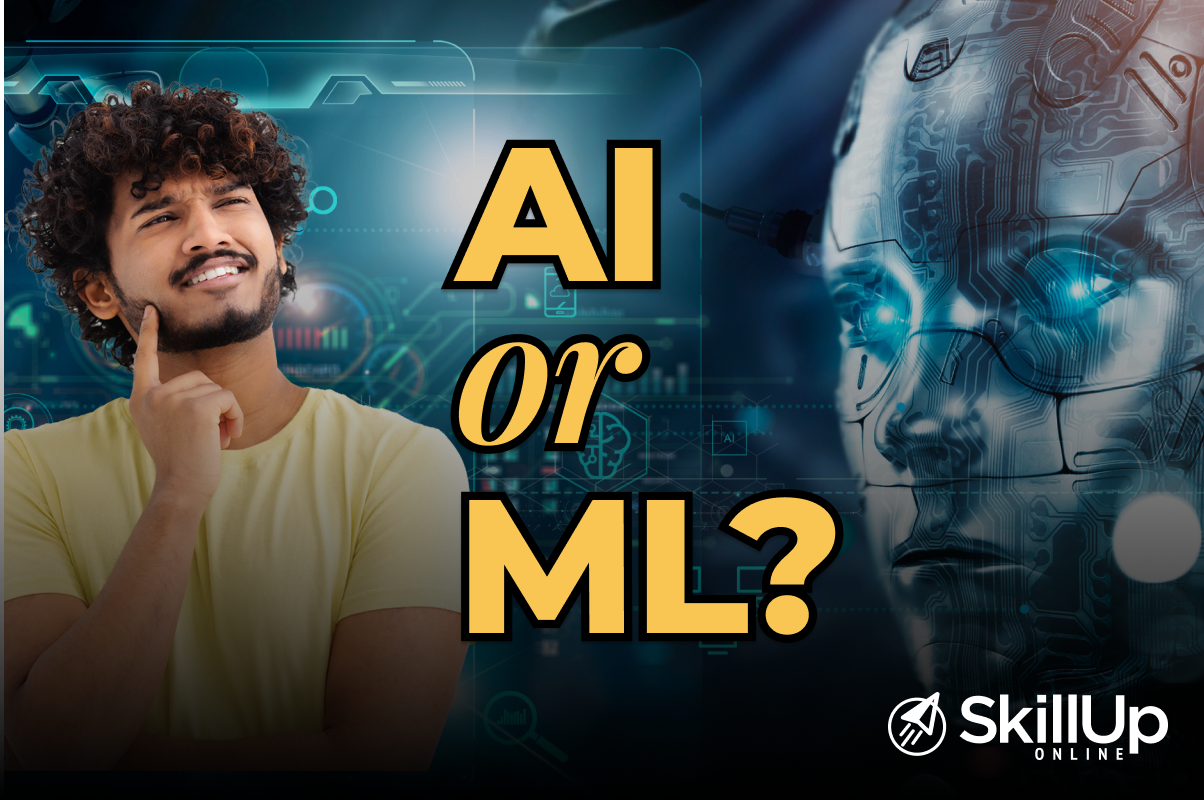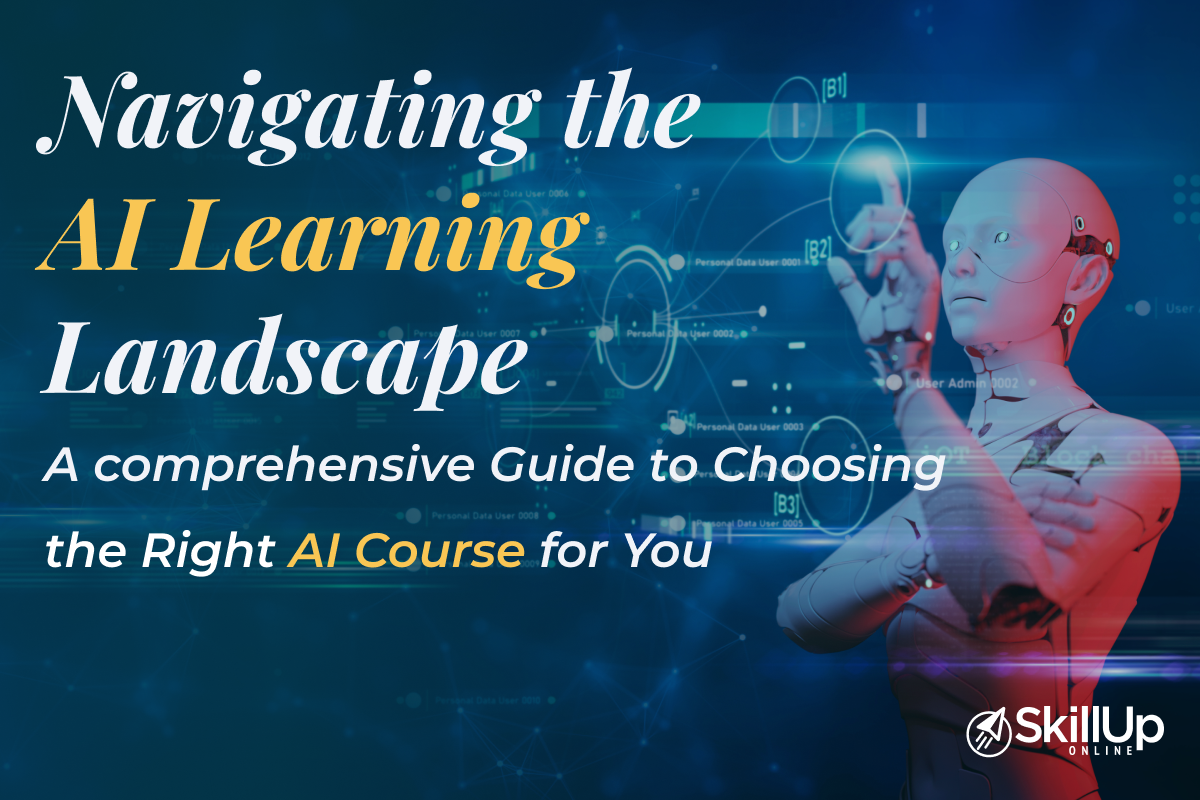Artificial intelligence (AI) stands as one of the most transformative technologies of our time, reshaping industries, driving innovation, and impacting how we interact with the world. At its core, AI aims to replicate human intelligence in machines, enabling them to perform tasks that typically require human cognitive functions such as learning, reasoning, problem-solving, and decision-making.
Defining Artificial Intelligence
Artificial intelligence can be defined as the capability of machines to exhibit human-like intelligence. This helps AI to analyze data, adapt to varying situations, and make informed decisions. It encompasses various technologies, including machine learning, natural language processing, computer vision, and more. AI systems can process vast amounts of data at speeds impossible for humans. It not only uncovers patterns and draws insights, but also make predictions.
The Importance and Applications of AI
The importance of AI extends far beyond its technological prowess. It has become a driving force in shaping the future of industries and economies. AI can solve complex problems, streamline processes, and enhance decision-making across all sectors. For example:
- Healthcare: AI aids in diagnosing diseases, analyzing medical images, and predicting patient outcomes. It also enables personalized treatment plans and drug discovery, and revolutionizing healthcare delivery.
- Finance: AI algorithms analyze market trends, optimize trading strategies, and detect fraudulent activities. For example, robo-advisors offer automated financial advice, democratizing investment.
- Manufacturing: AI-powered robots and automation enhance efficiency in manufacturing processes, while predictive maintenance reduces downtime and optimizes production schedules.
- Retail: AI-driven recommendation engines enhance customer experience by suggesting products based on preferences and past behaviors. For example, supply chain optimization and inventory management.
- Education: AI-powered personalized learning platforms adapt content to individual student needs, improving engagement and learning outcomes.
AI is not just a technological advancement but a catalyst for innovation across diverse sectors. As we delve deeper into this guide, we’ll explore the core concepts that underpin AI’s capabilities, and set you up for building a comprehensive understanding of machine learning, neural networks, and their practical applications.
Understanding Machine Learning (ML)
Machine learning is the bedrock of AI, enabling machines to learn from data and improve their performance over time. At its essence, it’s about creating algorithms that learn patterns and make predictions, enhancing their accuracy with experience. A good learning path would be to take a Foundations of Artificial Intelligence and Machine Learning course that covers all important aspects. This will help you understand:
- Core Concepts: Machine learning involves three key concepts: input data, training, and predictions. Algorithms learn from training data, and then identify patterns and relationships. This learning is used to predict or decide on new, unseen data.
- Types of Machine Learning: Three main types of machine learning exist – supervised, unsupervised and reinforcement learning. Supervised learning involves labeled data used for training. Unsupervised learning clusters data points into groups. And reinforcement learning uses reward-based systems to improve decision-making over time. To grasp the fundamentals of these different types of learning you can opt for a deep learning fundamentals
- Machine Learning Algorithms: Machine learning presents multiple algorithm options, each suited for a different task. For example, linear regression predicts numerical values, decision trees create decision paths based on features, and support vector machines classify data points.
Exploring Neural Networks and Deep Learning
Neural networks mimic the human brain’s interconnected neurons, allowing machines to process complex data. Deep learning is a subset of this, involving networks with multiple layers, each processing different features.
- The Basics of Neural Networks: Neural networks consist of input, hidden, and output layers. Neurons in one layer pass data to the next, with weights determining the strength of connections. Through iterations, these weights are adjusted to minimize errors and improve accuracy.
- Deep Learning vs. Traditional ML: Deep learning’s strength lies in processing unstructured data, like images and text. Traditional ML is better for structured data. Deep learning requires more data and computation but excels in complex tasks.
- Common Architectures: Convolutional Neural Networks (CNNs) excel in image analysis, using filters to detect features. Recurrent Neural Networks (RNNs) are great for sequential data like language, processing it step by step. Generative Adversarial Networks (GANs) create new data instances.
By understanding machine learning’s core concepts and delving into the world of neural networks and deep learning, you’ll grasp the building blocks of AI’s cognitive capabilities. In our upcoming sections, we’ll venture into Natural Language Processing and Computer Vision and expand the horizon of AI’s practical applications.
Data Pre-processing and Feature Engineering
Data is the lifeblood of AI, and its quality profoundly influences outcomes. Pre-processing and feature engineering refine raw data into meaningful inputs for machine learning models.
- The Role of Data in AI: Data is the foundation of AI models. Clean, diverse, and representative data is essential for accurate predictions and insights.
- Data Cleaning and Transformation: Raw data often contains noise and inconsistencies. Data cleaning involves removing errors, duplicates, and outliers. Transformation then converts this data into a suitable format for analysis.
- Feature Selection and Extraction: Features are input variables that influence model outcomes. Feature selection eliminates irrelevant features, reducing complexity. Feature extraction creates new features from existing ones, enhancing model performance.
Introduction to Natural Language Processing (NLP)
NLP empowers machines to understand and process human language. From chatbots to sentiment analysis, NLP opens avenues for human-computer interaction.
- NLP Fundamentals: NLP enables machines to comprehend, interpret, and generate human language. It involves text classification, named entity recognition, and language translation.
- Text Processing and Analysis: NLP begins with text pre-processing – tokenization, stemming, and removing stop words. The analysis involves extracting insights from text, like sentiment or topic.
- Sentiment Analysis and Language Generation: Sentiment analysis determines the emotional tone of the text. Language generation employs models like Recurrent Neural Networks (RNNs) to create coherent and contextually relevant text.
Understanding the significance of data preparation and the capability of NLP lays a strong foundation for harnessing AI’s potential.
Computer Vision and Image Processing
Computer vision enables machines to interpret visual information from the world, transforming pixels into meaningful insights.
- The Basics of Computer Vision: Computer vision processes images and videos, extracting information like objects, shapes, and scenes. It involves tasks like image recognition, object detection, and image generation.
- Image Recognition and Classification: Image recognition identifies objects within images. And classification assigns labels to pictures based on their content, allowing machines to distinguish between different classes.
- Object Detection and Image Generation: Object detection identifies and localizes multiple objects in an image. Image generation involves creating new ideas based on learned patterns, a capability driven by Generative Adversarial Networks (GANs).
AI Ethics and Bias
AI’s transformative power comes with ethical responsibilities. Addressing bias and ensuring responsible AI development is crucial for equitable and fair outcomes.
- Ethical Considerations in AI: AI decisions impact lives. Ethical considerations include transparency in decision-making, privacy protection, and adherence to social norms.
- Addressing Bias in AI Algorithms: Bias can be inadvertently embedded in algorithms, leading to discriminatory outcomes. Ensuring diverse and representative training data is crucial in minimizing bias.
- Ensuring Fair and Responsible AI: Organizations must adopt ethical AI practices involving cross-functional teams, audit trails, and continuous monitoring of AI systems for unintended consequences.
Practical AI Projects and Hands-On Learning
Mastering AI fundamentals goes beyond theory; it’s about applying knowledge to real-world projects. Practical experience solidifies your understanding and prepares you for tackling complex challenges.
- Build Your First AI Project: Begin with a manageable project. Choose a task that aligns with your interests and knowledge level, whether it’s image classification, sentiment analysis, or a chatbot. A good startup project would be to dive into a course on Python for AI, which also involves doing a hands-on project.
- Use Resources and Tools for AI Development: Utilize a variety of resources. Python is the dominant programming language for AI, with libraries like TensorFlow and PyTorch for building models. Online courses, tutorials, and AI communities offer invaluable learning opportunities. You could take a course on Deep Learning with TensorFlow to better understand the subject matter.
- Explore Online Platforms for Learning and Practicing AI: Platforms like Kaggle provide datasets and competitions to test your skills. GitHub hosts repositories of AI projects, fostering collaboration and showcasing your work to potential employers.
Future Trends in AI
AI’s journey is far from static. Emerging trends promise to reshape industries, redefine job roles, and challenge societal norms. Staying informed about these trends will position you at the forefront of AI’s evolution.
- Emerging Technologies in AI:Quantum computing, edge AI, and AI-driven healthcare diagnostics are some breakthroughs shaping AI’s future. Quantum computing’s immense processing power will open doors to solving currently intractable problems.
- AI’s Impact on Industries:AI’s application spans sectors. You can embrace these shifts for innovative career opportunities, for example:
- Healthcare benefitting from personalized medicine.
- Retail leveraging predictive analytics.
- Autonomous vehicles redefining transportation.
- Ethical and Societal Implications of Advanced AI:Advanced AI raises ethical dilemmas. Decision-making by AI in critical areas demands accountability and transparency. And addressing job displacement and algorithmic bias concerns is essential for a just AI future.
Pursuing AI Courses
The world of AI is vast and ever evolving, and this demands a commitment to continuous growth. Advanced AI courses are your gateway to unlocking the full potential of this dynamic field. SkillUp Online, a leader in online training, offers a range of advanced AI courses and programs tailored to your evolving needs.
Whether you’re interested in deep reinforcement learning, natural language processing, or AI tools, SkillUp Online has a set of AI courses designed by industry experts to empower you for promising career growth.
For instance, the TechMaster Certificate Program in Data Science and Artificial Intelligence program is an 11-month program that opens the door to exciting opportunities in artificial intelligence (AI) and data science. You can work through the fundamentals to an advanced level of understanding to kick-start your career with job-ready skills. Through hands-on projects, you’ll build sophisticated models that fuel innovation in AI-powered applications.
If obtaining a professional certificate from an established industry leader in AI technologies is critical in your career progression, you could consider taking the IBM Applied AI Professional Certificate Program. You can also opt for comprehensive AI courses that help you understand the complexity and depths of AI and stay ahead in a competitive landscape.
Joining AI Communities and Forums
While coursework provides structured learning, the power of community lies in its diversity and collaboration. Joining AI communities and forums is an invaluable step in your journey. Engaging with fellow enthusiasts, sharing insights, and learning from their experiences can give you unique perspectives and foster creativity.
These interactions help you overcome challenges and keep you updated with the latest trends and developments. Remember, AI is a field driven by collective wisdom, and your engagement within these communities can catalyze your growth.
Continuous Learning and Skill Enhancement
In the ever-evolving realm of AI, being complacent with your skills is the most significant barrier to success. Continuous learning is not merely a choice but a necessity. Skill enhancement isn’t just about keeping up; it’s about staying ahead of the curve.
The AI field’s rapid evolution means that even experienced professionals need to refresh their knowledge and adapt to new paradigms. So, how can you do that?
To ensure that you’re keeping up with the current trends, it’s crucial to utilize all the available online resources, including webinars, whitepapers, and expert interviews, and AI-related news that informs you about the latest trends and advancements. To upskill yourself in the newly emerging trends and technologies, you can also opt for online courses.
Next Steps
As you advance your AI skills, know that you’re becoming part of a community that values knowledge, collaboration, and innovation. Embrace the opportunities that AI courses offer. Whether you aim to upskill for your current role or explore new career horizons, the knowledge and connections you gain here will propel you forward.
On your journey to mastering AI, remember to stay dedicated and consistent with an undying eagerness to learn. Through continuous learning, community engagement, and dedicated skill enhancement, you’re poised to make a lasting impact on the world of artificial intelligence.
If you would like to know more about how you can build the necessary skills and get started as an AI professional contact our Learner Support Team at [email protected]. They will be more than happy to guide you on your next steps.
SkillUp Online









